H. Pylori
-
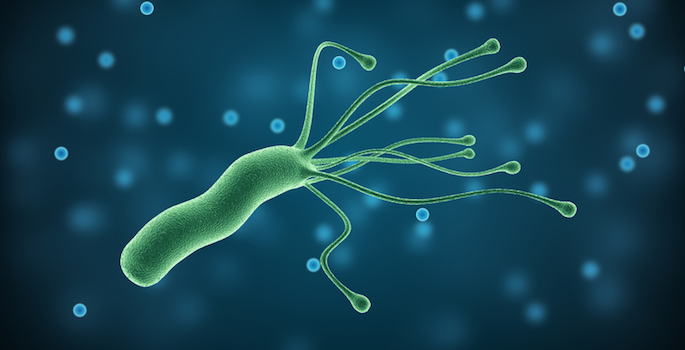
H. pylori, lipid loss and stomach cancer
H. pylori infection — a strong risk factor for stomach cancer — changes the composition of stomach lipids, which could offer new biomarkers for detecting premalignant changes, Vanderbilt researchers discovered. Read MoreJan 17, 2022
-

Stomach bug hit-and-run
The H. pylori machinery that “injects” an oncoprotein into stomach cells contributes to the development of gastric cancer, Vanderbilt researchers demonstrate. Read MoreJul 23, 2020
-

Powering H. pylori pathogenesis
Timothy Cover and colleagues report new insights into the sources of energy used by a bacterial “machine” linked to the pathogenesis of stomach cancer. Read MoreFeb 6, 2020
-

A step toward gastric cancer
New research findings provide insight into the detrimental events that develop in response to H. pylori infection. Read MoreOct 3, 2019
-

Toxin floats on lipid rafts
The bacterium H. pylori is a leading cause of stomach cancer, and Vanderbilt researchers are studying how one of its toxins gets into cells. Read MoreApr 23, 2018
-
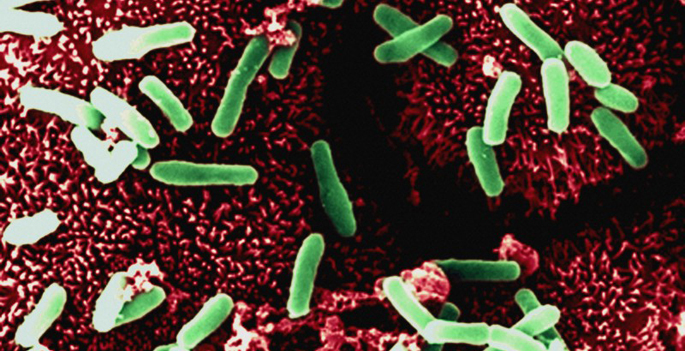
New target for chronic infection
An enzyme in macrophage immune cells may be a good target for treating chronic infections, Vanderbilt researchers have discovered. Read MoreFeb 2, 2017
-
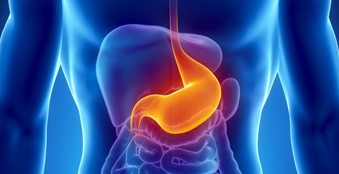
A DARPP role in gastric cancer
Vanderbilt researchers have discovered a link between Helicobacter pylori infection, inflammation and gastric cancer that could suggest new anti-cancer therapies. Read MoreNov 3, 2016
-

EGF receptor found to regulate macrophage inflammation in gut
Researchers at Vanderbilt University School of Medicine have uncovered a link between epidermal growth factor receptor (EGFR) signaling and the inflammatory response to bacterial infection in the gastrointestinal tract. Read MoreOct 13, 2016
-
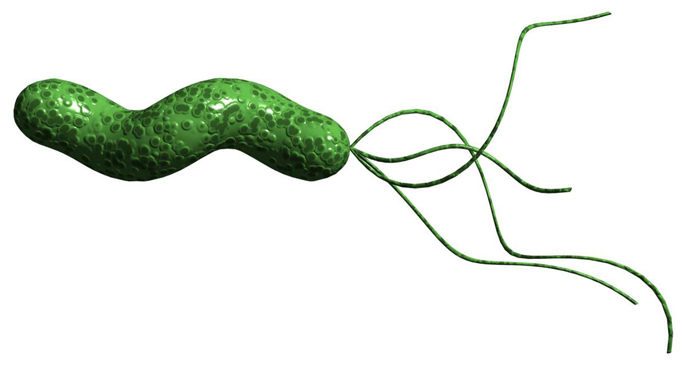
H. pylori and anemia – new evidence
The bacterium Helicobacter pylori has been linked to anemia and may be contributing to the incidence and severity of anemia worldwide. Read MoreSep 22, 2016
-

Host sequesters zinc to control stomach bug
Understanding how zinc and the host’s immune response control H. pylori’s cancer-causing potential could suggest new therapeutic strategies to reduce infection and cancer risk. Read MoreNov 21, 2014
-

Human and Helicobacter co-evolution
by Denise Anthony (iStock) A Vanderbilt University-led research team has solved a long-standing riddle: Why do people of mostly Amerindian ancestry in the Andes have a gastric cancer rate that is 25 times higher than that of fellow Colombians of mostly African descent only 124 miles away on the coast?… Read MoreJan 23, 2014
-
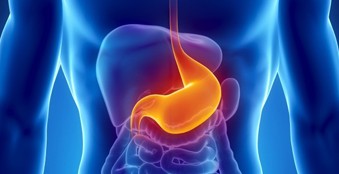
Cell changes en route to stomach cancer
Molecular characterization of pre-cancerous changes in cells lining the stomach could point to lesions with a greater risk of progression to cancer. Read MoreSep 26, 2013
-

Noninvasive test detects stomach bug
A noninvasive test can be used to identify the presence of Helicobacter pylori and evaluate its virulence, which will be useful in areas with high rates of H. pylori-associated gastric cancer. Read MoreAug 12, 2013
-
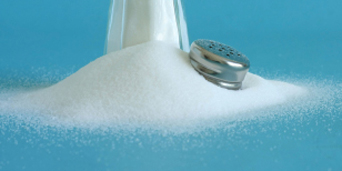
Salt revs stomach bug’s cancer impact
A high-salt diet worsens the carcinogenic effects of Helicobacter pylori, a bacterium that colonizes the stomachs of half of the world’s population. Read MoreMay 13, 2013
-

Study offers insights into gastric cancer prevention
Gastric cancer is the second leading cause of cancer death worldwide, with a particular burden in Latin America and eastern Asia. Read MoreFeb 28, 2013
-

Stomach bug alters tumor suppressor
The stomach bug Helicobacter pylori increases forms of a protein that promote tumor development, perhaps explaining how it elevates risk for gastric cancer. Read MoreOct 23, 2012
-

African ancestry, stomach bug link
Socioeconomic factors, African ancestry linked to risk for cancer-causing infection. Read MoreAug 16, 2012
-

Gut germs govern growth
Treating H. pylori infection in children may help their growth rebound, a recent study suggests. Read MoreApr 6, 2012
-

Stomach bugs impact nutrient levels
Helicobacter pylori, a bacterium that infects half of the world’s population and increases the risk for stomach cancer, appears to impair nutrient absorption. Read MoreJun 30, 2011